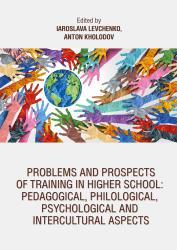Psychological and pedagogical factors in the organization of education of foreign students in the educational space of higher education institutions
Keywords:
financial and economic psychology, inclusive higher education, educational migrants, social networks, communication, multiculturalism, personal development, ethnopsychological features of the individual, professional and communicative competence, innovative technologies of training foreignersAbstract
Internationalization processes of world higher education are one of the leading trends in its modern development. The problem of creating special favorable study conditions for foreign students is relevant at the state level of many countries, since the training of competent specialists in demand on the labor market has geopolitical and socio-economic significance and is one of the main tasks of higher education at the current stage of the development of society. In this context, it is important to determine the psychological factors that ensure the tutoring activity of teachers, the role of emotional competence in increasing the effectiveness of the education of foreign students, the peculiarities of the non-verbal aspect of pedagogical communication with representatives of different cultures, taking into account the influence of the type of pedagogical system on the success of the adaptation of foreign students, studying the peculiarities of this process and development of ways of forming social adaptive competence of foreign students in the conditions of their professional training in higher education institutions of another country.

PROBLEMS AND PROSPECTS OF TRAINING IN HIGHER SCHOOL: PEDAGOGICAL, PHILOLOGICAL, PSYCHOLOGICAL AND INTERCULTURAL ASPECTS
Downloads
Pages
Published
Categories
License

This work is licensed under a Creative Commons Attribution-NonCommercial-NoDerivatives 4.0 International License.

